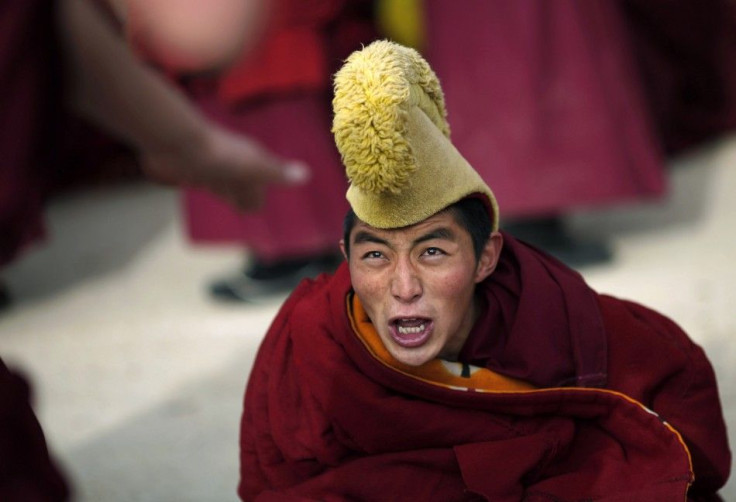Chinese Court Sentences Tibetan Monk, Nephew For Inciting Self-Immolation

A Chinese court Thursday convicted a Tibetan monk and his nephew of intentional homicide for inciting a series of self-immolations, state media reported.
Lorang Konchok, a 40-year-old monk at the Kirti Monastery in Aba County, Sichuan, was sentenced to death with a two-year reprieve for provoking eight people to set themselves on fire, three of whom died, since 2009, Xinhua news agency reported. He has been stripped of his political rights for life. This type of sentence usually means the guilty serves life in prison.
The monk’s nephew, Lorang Tsering, 31, who was found guilty of helping to recruit volunteers, was sentenced to 10 years in prison and will be denied his political rights for three years.
The court said that Lorang Konchok had maintained a long-term and close contact with Samtan, a 31-year-old former monk at the Kirti Monastery. The convicts recorded personal and family information and captured pictures of suicides and passed it on Samtan, who is a Tibet independence activist in India. The information was used by foreign media as a basis for creating secessionist propaganda, according to the court.
Self-immolations against the Chinese rule in Tibet saw a steep increase in recent years with 99 self-immolations recorded since 2009, according to the Central Tibetan Administration in India. At least 83 of them have died from these self-inflicted injuries.
The Central Tibetan Administration, which acts as Tibet's government-in-exile based in Dharamshala in northern India, says the Chinese government was resorting to blaming the Tibetans for self-immolations instead of addressing the reason behind them.
China calls the Tibetan self-immolators terrorists and reportedly released a documentary in May accusing the Dalai Lama, the head of Tibet's government-in-exile, of orchestrating a wave of self-immolations by the Tibetans. The Dalai Lama has been living in exile in Dharamshala since 1959 after fleeing a failed uprising against Chinese rule in Tibet.
© Copyright IBTimes 2024. All rights reserved.






















